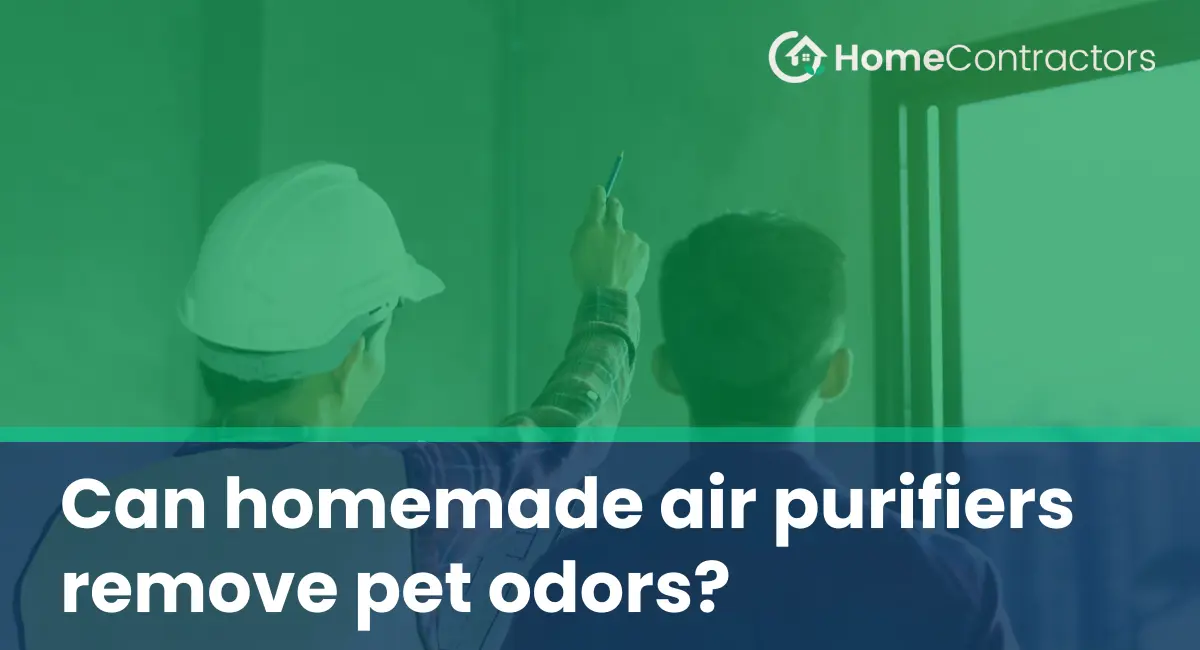It’s no secret that living with pets can bring immense joy and companionship to our lives. However, it often comes with the not-so-pleasant side effect of pet odors. Whether you have a dog, cat, or other furry friend, lingering odors from their fur and waste can be a persistent issue. While commercial air purifiers are readily available on the market, many people wonder if homemade air purifiers can effectively tackle pet odors. In this article, we will explore this topic in more detail.
Understanding Pet Odors
Before diving into the effectiveness of homemade air purifiers, it’s important to understand the source of pet odors. Pet odors can arise from various factors, including:
- Pet dander: Pets shed skin cells called dander, which can become airborne and contribute to odors.
- Urine and feces: Accidents happen, and pet waste can quickly release unpleasant smells.
- Sweat and oils: Just like humans, pets have sweat glands that produce oils, which can accumulate and subsequently generate odors.
- Breath: Pet breath can be another source of unwanted smells, especially if dental hygiene is not properly maintained.
The Role of Air Purifiers
Air purifiers are designed to capture and eliminate airborne particles and odors, improving the overall air quality in a space. They work by pulling air through a series of filters to trap contaminants, such as pet dander, dust, pollen, and mold spores. While commercial air purifiers are specifically engineered for this purpose, homemade versions can also offer some benefits.
Homemade Air Purifiers
1. Baking Soda and Essential Oils
Baking soda is a popular deodorizer known for its ability to absorb and neutralize odors. Mixing it with a few drops of essential oils, such as lavender or lemon, can enhance its odor-fighting properties. To create a homemade air purifier, place an open container filled with baking soda mixed with essential oils in the area affected by pet odors. The baking soda will absorb the smells while the essential oils provide a pleasant fragrance.
2. Activated Charcoal
Activated charcoal is another effective odor absorber that can be used in a homemade air purifier. This porous substance is known for its ability to trap a wide range of odors and impurities. To utilize it, place activated charcoal in a container with holes or in a mesh bag and position it in the area where pet odors are most prevalent. Make sure to replace the charcoal regularly to maintain its effectiveness.
3. DIY HEPA Filter
High-Efficiency Particulate Air (HEPA) filters are commonly used in commercial air purifiers due to their ability to capture small airborne particles, including pet dander. While homemade HEPA filters may not be as efficient as their commercial counterparts, they can still provide some relief from pet odors. To create a DIY HEPA filter, attach a HEPA furnace filter to a box fan using tape or bungee cords. This setup can help trap pet hair, dander, and other particles.
Limitations of Homemade Air Purifiers
While DIY air purifiers can be effective at reducing pet odors, it’s important to note their limitations. Homemade methods may not have the same level of efficiency or coverage as commercially available air purifiers. Additionally, homemade options might not be as effective at capturing smaller particles, like pet dander, compared to HEPA filters specifically designed for this purpose.
In Conclusion
Homemade air purifiers can provide some relief from pet odors, but their effectiveness may vary. Combining different methods such as using baking soda, essential oils, activated charcoal, or DIY HEPA filters can help tackle pet odors in your home. However, for optimal results and a more comprehensive solution, it’s worth considering investing in a commercial air purifier designed to specifically target pet odors and allergens.
